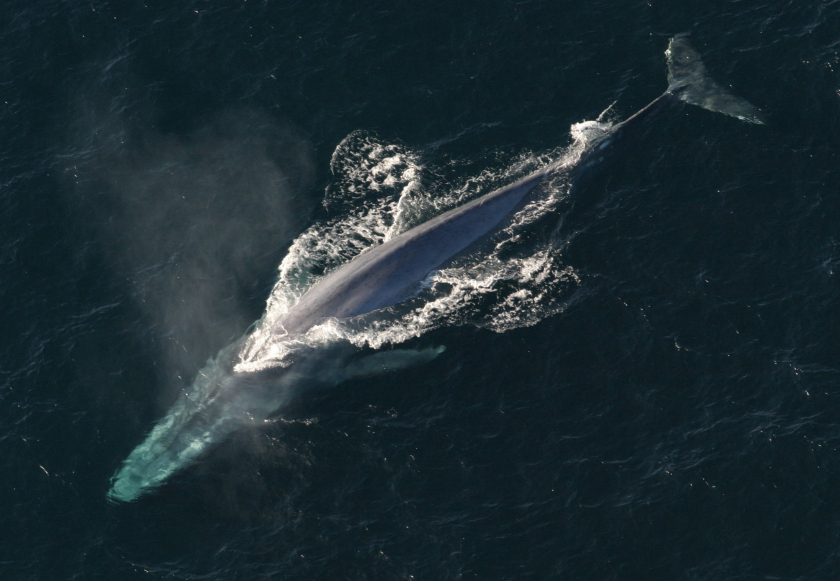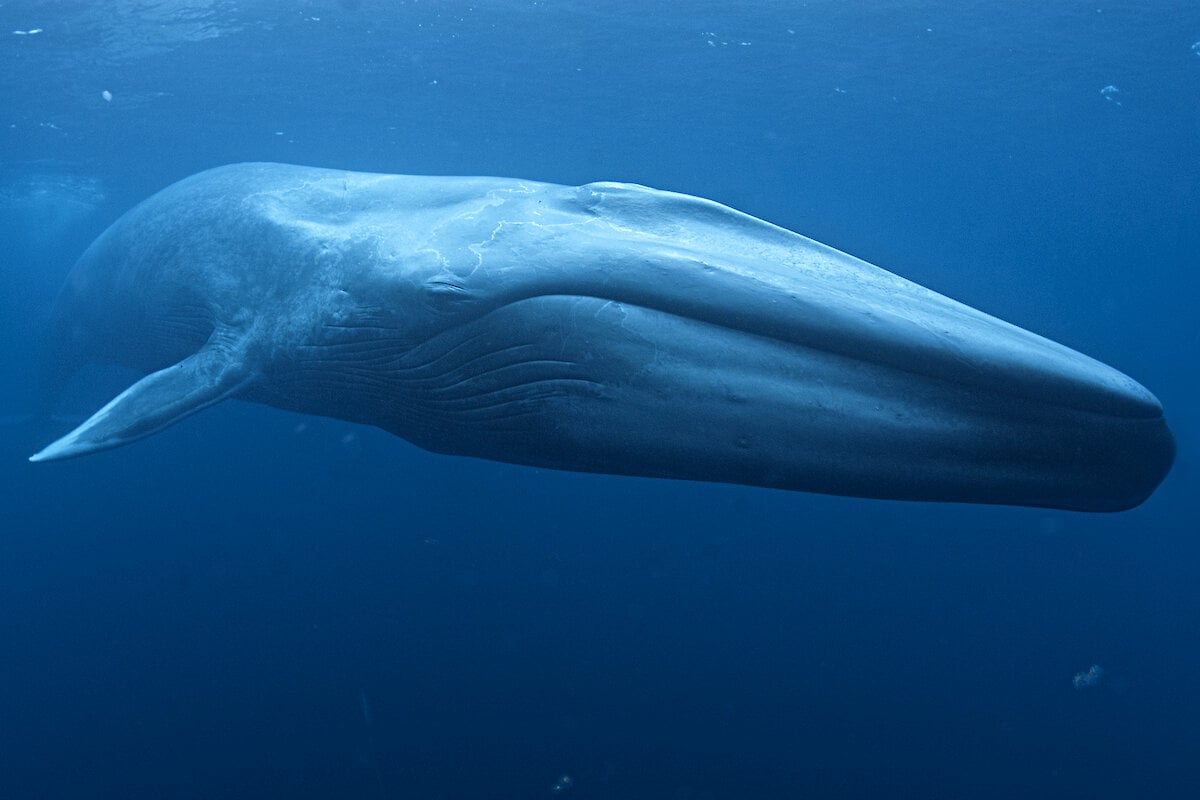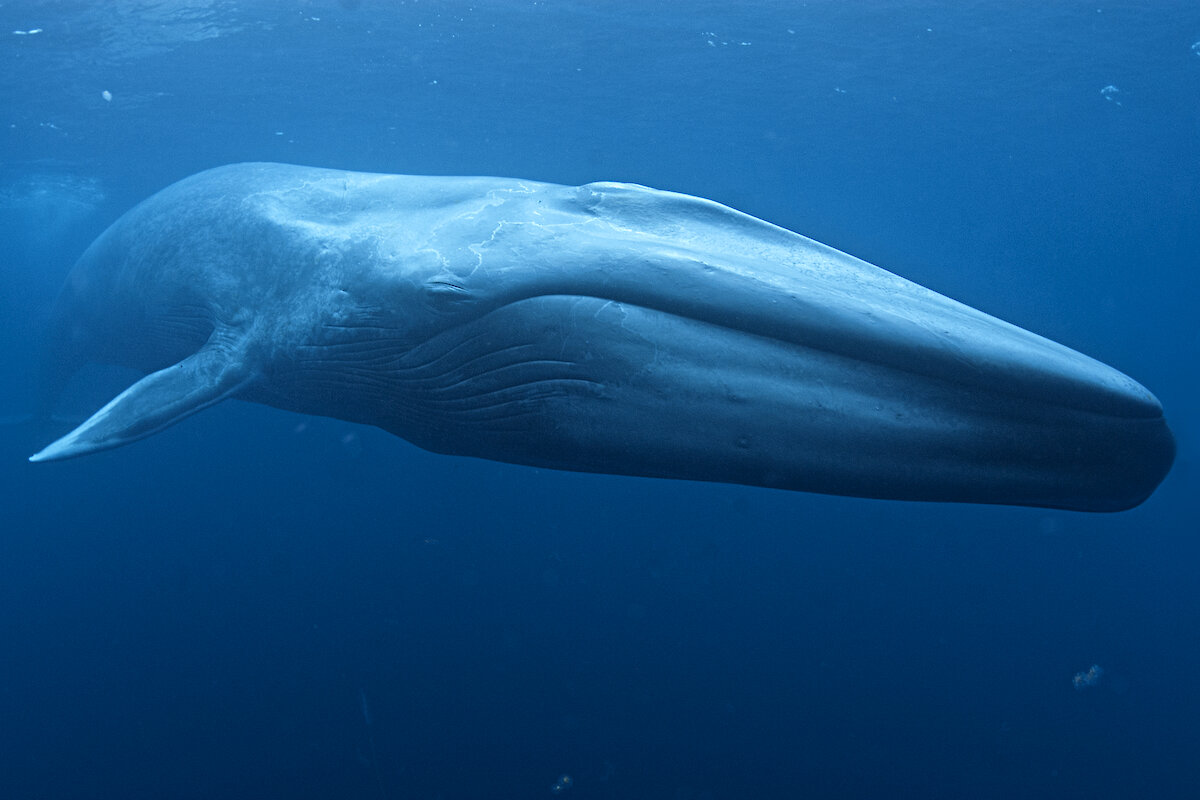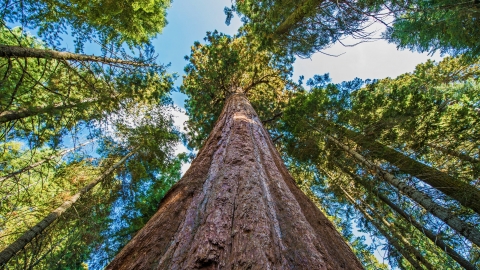On August 4th, Mr. Do Thanh Toan (37 years old, residing in Cat Khanh commune, Phu Cat district, Binh Dinh province) reported that he had just spotted a pod of about 6-7 blue whales moving and feeding in the De Gi sea area (Cat Khanh commune), 0 to 1 nautical mile from the shore.
According to Mr. Toan, he spotted the whales around 5 to 6 a.m. on the same day (August 4th). At that time, the whales were swimming around, their mouths wide open as they surfaced from the water.
Mr. Toan shared that the whale pod consisted of about 6 to 7 whales, surrounding a small school of fish to hunt. Occasionally, the whales would open their mouths wide and surface. In the sky, flocks of seabirds also joined in to find leftover fish scraps. The scene of them feeding at dawn was fascinating and the rarest sight he had ever witnessed.
Earlier, on July 26th, while introducing tourists to the coastal area of Vung Boi and Hon Trau (part of the De Gi coastal area), Mr. Do Thanh Toan also spotted two blue whales feeding.

According to local people, the appearance of whales near the De Gi coast is a very rare sight in recent years. In their beliefs, fishermen consider the appearance and encountering of a pod of whales to be extremely lucky at sea.
Blue whales, also known as baleen whales, belong to the suborder Mysticeti (baled whales). They live in all the Earth's oceans. They evolved from land-dwelling mammals, and their closest relatives are hippos.
Whales are the heaviest and largest animals in the world. A mature blue whale can weigh up to 180 tons. It is known that in the first seven months after birth, blue whale calves drink about 400 liters of milk per day. Therefore, their weight increases quite rapidly, by about 90 kg per day. Even at birth, they weigh as much as a mature hippopotamus, which is 2,700 kg.

 VI
VI EN
EN


































